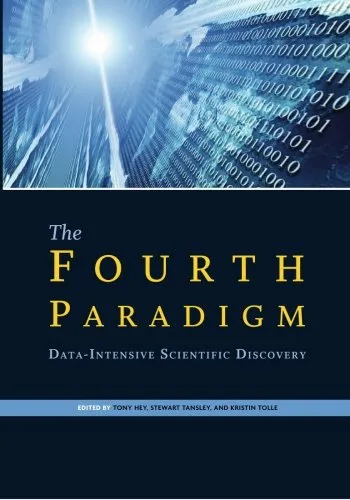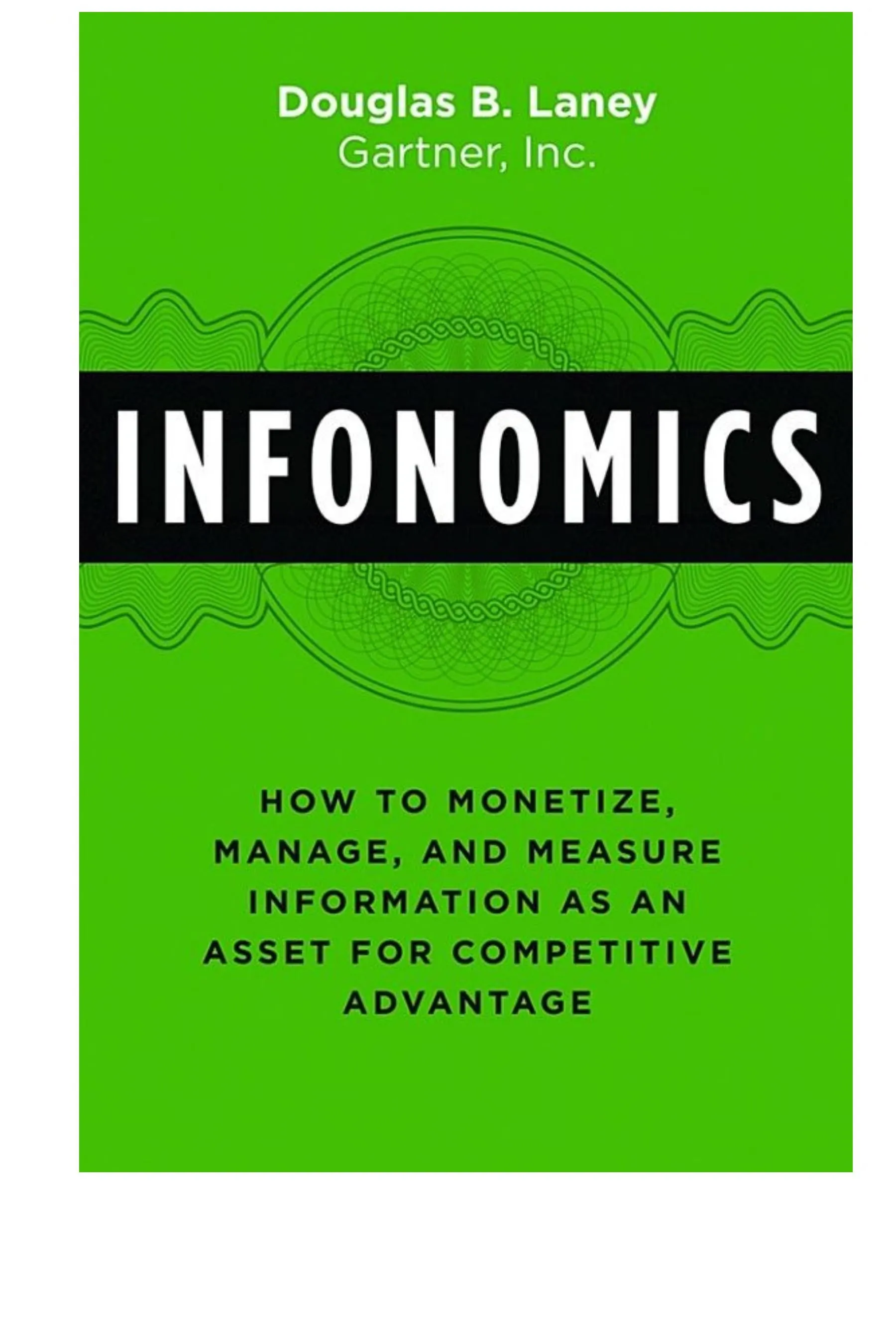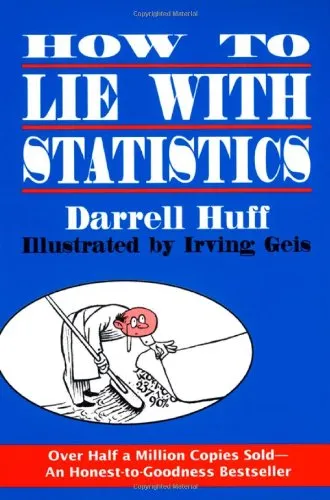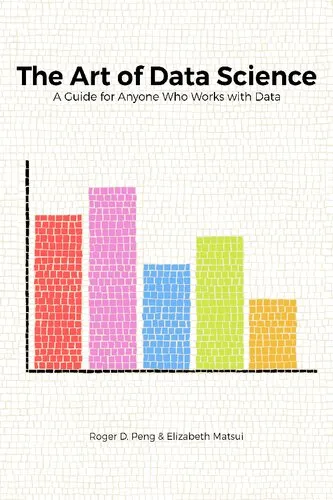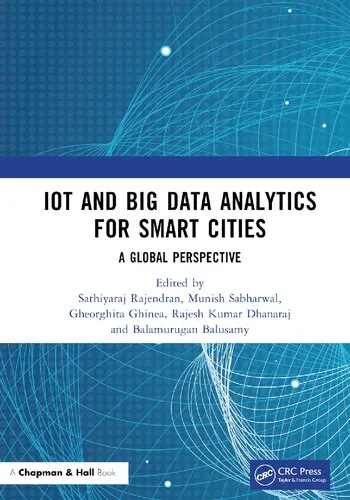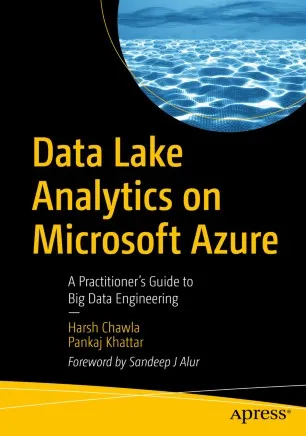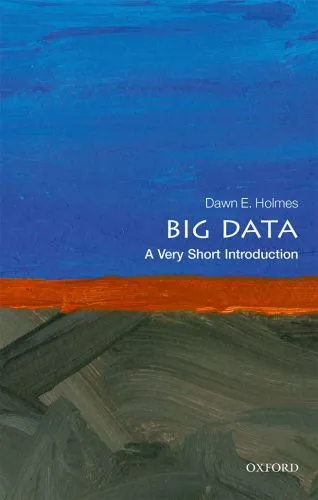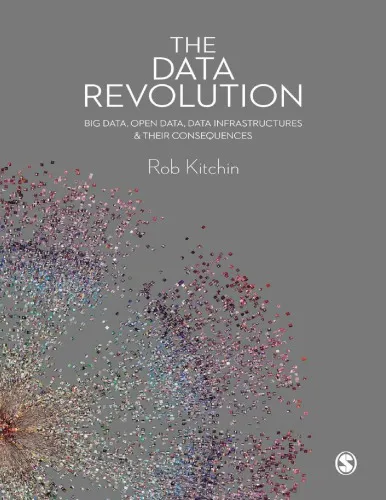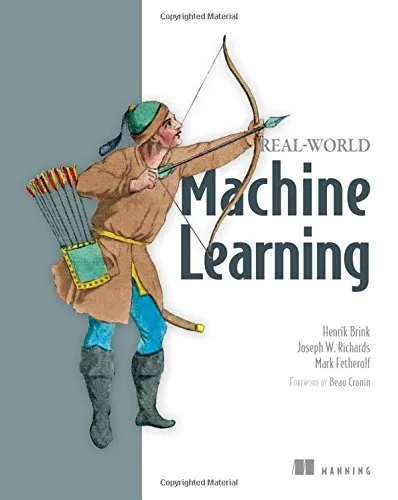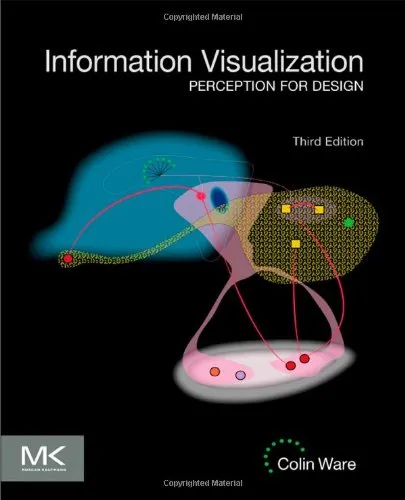The Fourth Paradigm: Data-Intensive Scientific Discovery
4.6
بر اساس نظر کاربران

شما میتونید سوالاتتون در باره کتاب رو از هوش مصنوعیش بعد از ورود بپرسید
هر دانلود یا پرسش از هوش مصنوعی 2 امتیاز لازم دارد، برای بدست آوردن امتیاز رایگان، به صفحه ی راهنمای امتیازات سر بزنید و یک سری کار ارزشمند انجام بدینکتاب های مرتبط:
معرفی کتاب: The Fourth Paradigm: Data-Intensive Scientific Discovery
کتاب "The Fourth Paradigm: Data-Intensive Scientific Discovery" یکی از آثار تاثیرگذار دنیای علم و فناوری است که به بررسی رویکردهای نوین در علم دادهمحور میپردازد. این کتاب تحت ویراستاری Tony Hey، Stewart Tansley و Kristin Tolle، چشماندازی نوین به روشهای پژوهش علمی ارائه میدهد. در ادامه به خلاصهای کامل از این اثر و دلیل اهمیت آن میپردازیم.
خلاصهای از کتاب
این کتاب در مورد روی آوردن به Paradigm چهارم در علم است؛ Paradigmهای قبل شامل:
- Paradigm اول: پژوهش تجربی
- Paradigm دوم: نظریهپردازی علمی
- Paradigm سوم: شبیهسازی کامپیوتری
این اثر از مجموعهای از مقالات توسط بزرگترین متخصصان دنیا در حوزههای مختلف مثل زیستشناسی، فیزیک، شیمی، علم کامپیوتر و پزشکی تشکیل شده است. محققان نشان میدهند که چگونه دادهمحوری، به پیشبرد پژوهشها و کشفیات علمی کمک میکند.
نگاهی به درسهای کلیدی کتاب
- درک اهمیت Big Data در پژوهش علمی
- آشنایی با تکنیکهای ذخیرهسازی، دسترسی و آنالیز دادهها
- بررسی ابزارهای مدرن برای Data Science و نقش آنها در سرعتبخشی کشفیات
- تغییر در استراتژیهای علمی با تمرکز بر دادههای دقیقتر
- چگونگی استفاده از Semantic Computing برای استخراج دانش از حجمهای عظیم داده
نقلقولهای معروف از کتاب
"Science has always revolutionized itself when new tools and technologies make it possible to ask and answer entirely new questions."
"Data is the new 'oil' of the 21st century, and how we manage and use it will define innovation in science."
"The Fourth Paradigm is not just an evolution in science—it’s a revolution."
چرا این کتاب اهمیت دارد؟
اهمیت این کتاب را میتوان در چند نکته کلیدی خلاصه کرد:
- این کتاب خوانندگان را با رویکردهای پیشرفته و فناوریهای نوین آشنا میکند و دیدگاههای نو درباره آینده علم ارائه میدهد.
- نشان میدهد که چگونه هوش مصنوعی، Machine Learning و علم داده میتوانند برای حل پیچیدهترین مسائل بشر استفاده شوند.
- این کتاب نه تنها برای دانشمندان، بلکه برای توسعهدهندگان نرمافزار، تحلیلگران داده و حتی سیاستگذاران نیز مفید است، زیرا اصولی پایهای اما کاربردی ارائه میدهد.
خواندن این کتاب میتواند نقش راهنما را برای هر کسی که در مسیر دادهمحور حرکت میکند، ایفا کند و نگاهی عمیقتر به اهمیت داده و ابزارهای معاصر در دنیای علم ارائه دهد.
Introduction to "The Fourth Paradigm: Data-Intensive Scientific Discovery"
The scientific landscape has evolved drastically, shifting from traditional methodologies to a bold, computational approach that defines modern discovery. "The Fourth Paradigm: Data-Intensive Scientific Discovery," edited by Tony Hey, Stewart Tansley, and Kristin Tolle, encapsulates this transformative journey, emphasizing how data is becoming the cornerstone of innovation in research. This book is essential reading for those who wish to understand the profound impact of data-driven methodologies across various scientific disciplines, from healthcare to environmental sciences.
Detailed Summary of the Book
The Fourth Paradigm explores the historical and intellectual foundations behind what the authors term as the "fourth paradigm" of science. The first three paradigms—empirical observation, theoretical approaches, and computational simulation—form the basis of scientific discovery. However, the fourth paradigm introduces something groundbreaking: data-intensive science. As the world generates increasingly vast amounts of data, from satellites monitoring climate to genetic sequencing, researchers are navigating a sea of information that necessitates new tools, techniques, and thought processes.
Divided into multiple chapters and essays contributed by leading scientists and scholars, the book dives deep into how data science is enabling groundbreaking discoveries. Topics range from how computational tools analyze vast datasets in astrophysics, to the role of machine learning in predicting epidemics, and how collaboration and transparency are reshaping research ethics. Each section is tied together by one undeniable truth: the shift to data-centric thinking is redefining how science is practiced globally.
Key Takeaways
- The fourth paradigm represents a unique convergence of computer science, statistics, and domain-specific expertise to unlock insights buried in massive datasets.
- Visualization, computational modeling, and storage technology are critical for navigating and interpreting complex datasets.
- Interdisciplinary collaboration and open data practices are essential for fueling innovation in the age of big data.
- The book serves as a roadmap for scientists, technologists, and policymakers to embrace data-intensive discovery processes.
- Data integrity, transparency, and reproducibility emerge as vital principles in the new scientific paradigm.
Famous Quotes from the Book
"Everywhere we look, increasingly large volumes of data are being generated not only by scientific instruments but also by a plethora of digital devices and Internet activity."
"...the greatest opportunities will arise from combining expertise in the disciplines of science with the computational power needed to create new tools and understand these massive datasets."
Why This Book Matters
The Fourth Paradigm is not just a book; it's a manifesto for future scientific endeavors. It argues for a fundamental shift in how researchers approach problems and solutions in the digital age. With the rapid growth of data generation globally, traditional methods are no longer sufficient. This book underscores the importance of embracing new computational methods, fostering open collaboration, and adopting transparency to keep pace with this transformation.
Importantly, the book outlines a path for how scientists, policymakers, and industry leaders can work together to leverage data for societal benefit, whether through curing diseases, mitigating climate change, or exploring the universe. The introduction of the fourth paradigm is not exclusive to scientists; it also resonates with technologists, engineers, and anyone involved in problem-solving on a large scale.
By demystifying the transition to data-intensive science, this book encourages a broader understanding of how humanity can harness the computational revolution to achieve transformative results across industries and disciplines.
دانلود رایگان مستقیم
شما میتونید سوالاتتون در باره کتاب رو از هوش مصنوعیش بعد از ورود بپرسید
دسترسی به کتابها از طریق پلتفرمهای قانونی و کتابخانههای عمومی نه تنها از حقوق نویسندگان و ناشران حمایت میکند، بلکه به پایداری فرهنگ کتابخوانی نیز کمک میرساند. پیش از دانلود، لحظهای به بررسی این گزینهها فکر کنید.
این کتاب رو در پلتفرم های دیگه ببینید
WorldCat به شما کمک میکنه تا کتاب ها رو در کتابخانه های سراسر دنیا پیدا کنید
امتیازها، نظرات تخصصی و صحبت ها درباره کتاب را در Goodreads ببینید
کتابهای کمیاب یا دست دوم را در AbeBooks پیدا کنید و بخرید
1411
بازدید4.6
امتیاز0
نظر98%
رضایتنظرات:
4.6
بر اساس 0 نظر کاربران
Questions & Answers
Ask questions about this book or help others by answering
No questions yet. Be the first to ask!
